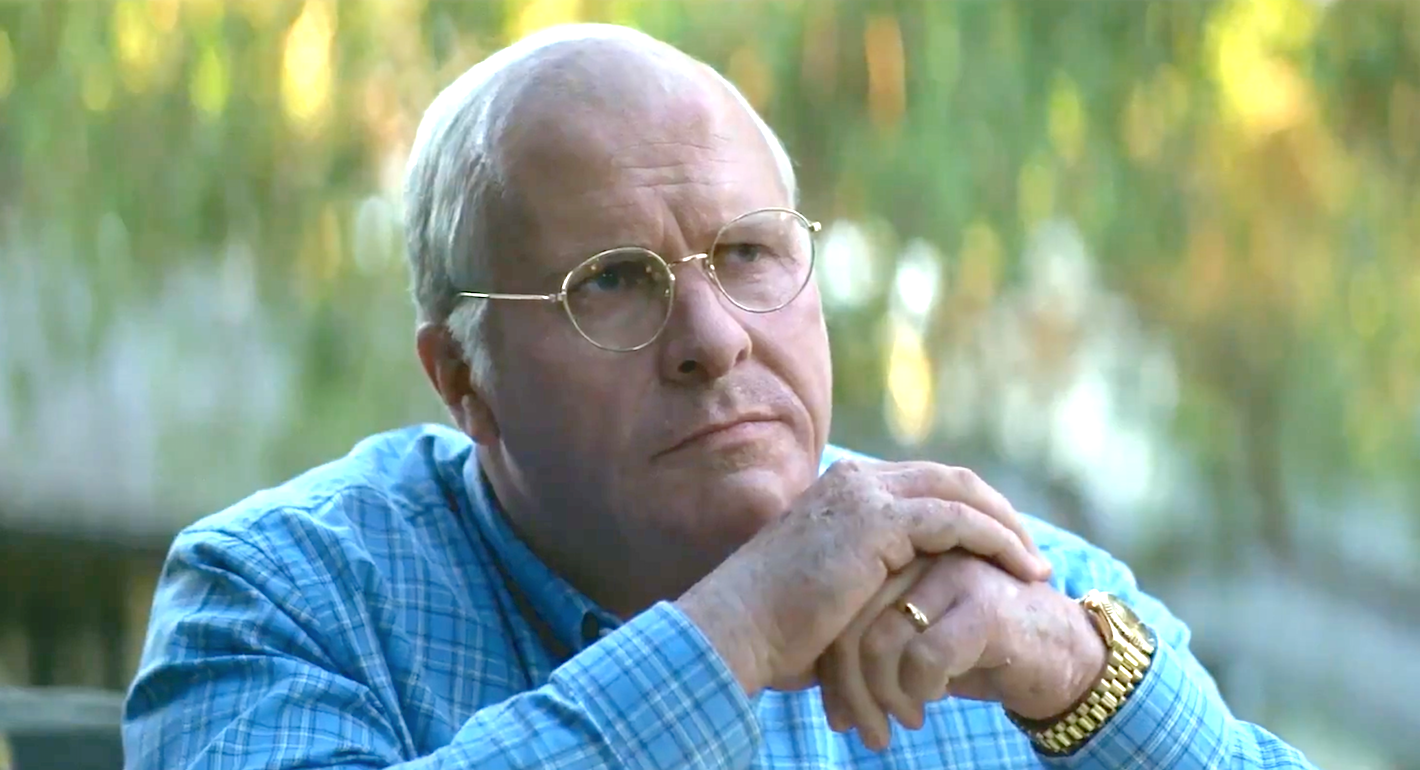About a decade ago, nothing excited me more than the latest Will Ferrell movie directed by Adam McKay. When you release movies like Anchorman, Talladega Nights, and Step Brothers in relatively quick succession, you know something special is gonna make you laugh onscreen. I thought both Ferrell and McKay were equally responsible for how awesome those movies are, but due to the recent downturn of Ferrell’s comedy career and The Big Short‘s ascendance, I had clearly underestimated how much Adam McKay mattered in the fruition of those films. McKay has pivoted into become one of the best political filmmakers of our time, using his comedic talents to skewer and satirize what can seem like boring subjects on the outside. Vice is the writer/director’s take on Dick Cheney, using all McKay’s directing weapons to portray a US leader that may have played more of a role in US influence than any other in recent memory.
Vice is less a straightforward biopic about Cheney (Christian Bale), than a movie using the eventual VP’s life bullet points to formulate a story. We see his lost upbringing in Wyoming, eventually falling in love with his wife Lynne (Amy Adams) who encourages him to clean himself up. Cheney does, becoming a Washington DC intern for Donald Rumsfeld (Steve Carell), slowly rising the ranks of the Republican Party, eventually becoming a Representative from Wyoming with the help of Lynne’s campaigning. After realizing he would never become President, Cheney opted to work for Haliburton in the private sector for about a decade or so….until George W. Bush (Sam Rockwell) decided he needed an experienced running mate. We see Cheney mold W. into his personal lackey, ready to expand executive powers the minute the opportunity arises; like perhaps, a terror attack on US soil?
One of the reasons Adam McKay is an amazing filmmaker is that his films have a point of view. As McKay has gotten older and more refined, his point of view has turned angry, which is the tone Vice takes most of the time. McKay sees Dick Cheney’s rise to power as a stacking of teacups, one on top of the other, that could fall at any moment, but never does, and Vice carries itself that way. What if Lynne was a more meek housewife, unable to fix the alcoholic younger Dick? What if Donald Rumsfeld hadn’t spoken to the interns? What if George W. Bush wasn’t so easily manipulated? What if 9/11 never happened? All of these questions build to amusing little climaxes which McKay amusingly will punctuate with a credits sequence titled “And Dick Cheney lived peacefully in Virginia, never working in government again” or a Shakespearean soliloquy. The problem with stacked teacups is eventually, they all fall down, which to McKay means fallout like corporate influence in the political arena, distrust and worldwide chaos thanks to US foreign policy, greater mass shootings because of voting against gun control, and a financial crisis because of deregulation. That leap might be too large, but it isn’t unreasonable thanks to the pseudo political history lesson Vice provides us. McKay isn’t just targeting the weak political leaders who bowed to Cheney’s will though; he’s got too much anger that he needs to get out. The end is a chilling reminder that WE voted in this man. Over. And Over. Again. We even voted for his daughter, who is now a US Representative. That is a scary note to end on, but it will make sure viewers come out of the movie at least more in political thought than they were before Vice.
As much as Vice does point out how heinous some of Dick Cheney’s actions and policies turned out to be. I would argue Vice doesn’t really demonize him as much as you’d think. McKay’s Cheney is an amoral political strategist with an insatiable lust for power. However, that doesn’t mean Cheney doesn’t know the rules or despise American political process. It simply means the man understands how politics works so well that he exploits the flaws in the system to get as much power as he can. The best example of this is how prepared he was to become the Vice President. Cheney sussed out early that W. was running to prove something to his father, but Dick remained quiet and seemed like a team player, offering to “aid” Bush by handling mundane day to day politics like the Department of Defense and Energy(!) in a dry monotone voice, which made it sound like he knew what he was talking about and his intentions were pure. We then see how he impressively inserted himself into every part of the lawmaking process, getting Antonin Scalia on the Supreme Court involved with his own lawyers, having people he trusts in all the governing bodies, and expertly working around laws with clever ideas like having a guy who just started as a secretary with the Department of Energy sit with headphones on while Cheney met with high level industry executives, perhaps about where in Iraq they would like to dig for oil. Christian Bale’s complete transformation into Cheney makes you see why McKay is equally impressed and repulsed by the man: the VP knows what he wants, and gets it by being quiet and doing things nobody even knows are going on, while seemingly being a loving dad and decent man to everyone he meets.
It takes a true entertainer to make the boring subjects of the world pop and crackle. I hope Adam McKay continues to seek out the seemingly boring, put his magic into the story, and make it funny and also educational, like a warped pseduo documentary. Maybe the Arthur Andersen accounting scandal? Civil Asset Forfeiture? Government surveillance? I really don’t care Adam McKay, just keep that fire going.

